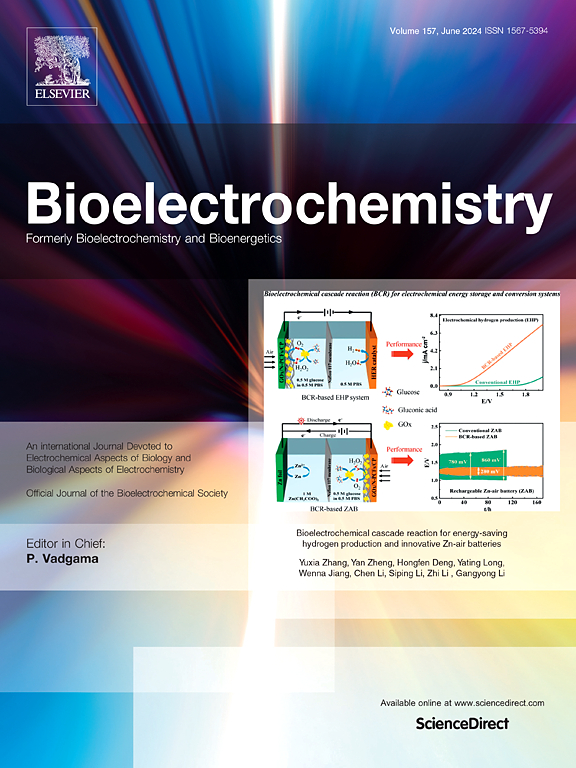Adverse childhood experiences and internalizing symptoms: the moderating role of neural responses to threat
IF 3.6
2区 医学
Q1 NEUROSCIENCES
引用次数: 0
Abstract
Adverse childhood experiences (ACEs) increase vulnerability to internalizing symptoms, namely symptoms characterized primarily by processes within the self, such as anxiety and depression, but the underlying processes are still unclear. One possible mechanism is that ACEs alter the neural correlates responsible for the preferential processing unpleasant stimuli, a key feature of anxiety. Another mechanism could be a stress-induced disruption in the processing of pleasant stimuli, which is mostly linked with depressive symptoms. In this study, we examined how ACEs and neural correlates of different emotional processing stages (affective engagement, anticipation, elaboration) interact in the association with internalizing symptoms in a sample of university students (n = 46, 28 females). Participants completed the Adverse Childhood Experiences Questionnaire (ACE-Q), and the anxiety and depression subscale of the Brief Symptoms Inventory Checklist to assess depression and anxiety. An S1-S2 paradigm, a task in which a cue (S1) anticipates the valence of a succeeding emotional image (S2), was used during an electroencephalographic (EEG) recording. Three event-related potentials (ERPs) reflecting different stages of emotional processing were assessed: the Cue-P300 (reflecting cue-evaluation and affective engagement), the Stimulus Preceding Negativity (SPN; reflecting outcome anticipation), and the P300/late positive potential (LPP) complex (reflecting affective processing). ACEs were linked to greater P300/LPP for unpleasant stimuli, suggesting that childhood adversities may be related to increased elaboration of threatening information. Moreover, ACEs were associated with dampened engagement (Cue-P300) and processing (P300/LPP) of pleasant content. Interestingly, the interaction between the P300/LPP to unpleasant stimuli and ACEs was significantly associated with greater symptoms of anxiety, whereas there was no effect in the link with depression. Specifically, individuals exposed to ACEs only reported heightened anxiety symptoms when their P300/LPP complex to unpleasant stimuli was larger. No significant effect emerged for the other ERPs components. Taken together, these findings suggest that an increased sensitivity to unpleasant content in adulthood might moderate the association between ACEs and anxiety symptoms.
不良童年经历和内化症状:对威胁的神经反应的调节作用
不良童年经历(ace)增加了内化症状的脆弱性,即主要以自我过程为特征的症状,如焦虑和抑郁,但潜在的过程仍不清楚。一种可能的机制是,ace改变了负责优先处理不愉快刺激的神经关联,这是焦虑的一个关键特征。另一种机制可能是压力引起的愉快刺激处理中断,这主要与抑郁症状有关。在本研究中,我们以大学生(n = 46,28名女性)为样本,研究了ace和不同情绪处理阶段(情感投入、期待、阐述)的神经相关因子如何与内化症状相互作用。参与者完成不良童年经历问卷(ACE-Q)和简短症状清单的焦虑和抑郁子量表来评估抑郁和焦虑。在脑电图(EEG)记录过程中使用了S1-S2范式,即提示(S1)预测后续情绪图像(S2)的效价。评估反映不同情绪加工阶段的三个事件相关电位(erp):线索- p300(反映线索评价和情感投入)、刺激前负性(SPN);反映结果预期)和P300/晚期正电位(LPP)复合体(反映情感加工)。对于不愉快的刺激,ace与更高的P300/LPP有关,这表明童年的逆境可能与对威胁信息的更多阐述有关。此外,ace与愉快内容的抑制参与(Cue-P300)和加工(P300/LPP)有关。有趣的是,P300/LPP对不愉快刺激和ace之间的相互作用与更大的焦虑症状显著相关,而与抑郁的联系没有影响。具体来说,暴露于ace的个体只有在他们的P300/LPP复合物在不愉快刺激下更大时才报告焦虑症状加剧。其他erp成分没有明显的影响。综上所述,这些发现表明,成年后对不愉快内容的敏感性增加可能会缓和ace与焦虑症状之间的联系。
本文章由计算机程序翻译,如有差异,请以英文原文为准。
求助全文
约1分钟内获得全文
求助全文
来源期刊

Neurobiology of Stress
Biochemistry, Genetics and Molecular Biology-Biochemistry
CiteScore
9.40
自引率
4.00%
发文量
74
审稿时长
48 days
期刊介绍:
Neurobiology of Stress is a multidisciplinary journal for the publication of original research and review articles on basic, translational and clinical research into stress and related disorders. It will focus on the impact of stress on the brain from cellular to behavioral functions and stress-related neuropsychiatric disorders (such as depression, trauma and anxiety). The translation of basic research findings into real-world applications will be a key aim of the journal.
Basic, translational and clinical research on the following topics as they relate to stress will be covered:
Molecular substrates and cell signaling,
Genetics and epigenetics,
Stress circuitry,
Structural and physiological plasticity,
Developmental Aspects,
Laboratory models of stress,
Neuroinflammation and pathology,
Memory and Cognition,
Motivational Processes,
Fear and Anxiety,
Stress-related neuropsychiatric disorders (including depression, PTSD, substance abuse),
Neuropsychopharmacology.
 求助内容:
求助内容: 应助结果提醒方式:
应助结果提醒方式:


